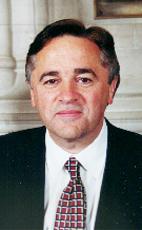Mr. Speaker, I did not talk about the Hibernia project because I wanted to focus on what I think is an exciting new dimension. There are a bunch of young men and women, some in their twenties and thirties who are developing software, not importing technology or software, adding some value and sending it off. The resource is their own imagination.
Limitations are those they impose on themselves. They are taking tools of modern technology and using those tools to create new knowledge based industries and exporting them around the world.
I find it fascinating this kind of activity happens on an island province where traditionally we do not expect that kind of development.
I want to acknowledge that today. This kind of development is every bit as exciting when one young firm with a handful of young engineers and a couple of people prepared to write and develop new software develops a brand new industry based on knowledge and the extent of its own imagination.
I find it every bit as awesome to contemplate as Hibernia, which is in itself an incredible feat of engineering. It has contributed significantly to the economy of the province of Alberta.
I do not want to belittle Hibernia. It is an important project. Another government in another day committed the funds to that project. It can lead to a series of new offshore developments. Mr. Speaker, knowing your former interest and expertise in matters having to do with energy development in Canada, I do not want to diminish from the project at all.
I simply want to take this opportunity to acknowledge what is being done by young incubator companies. They are not waiting for your permission or mine or even our acknowledgement. They are out there competing and winning in the world market. I think that is exciting and ought to be acknowledged and encouraged.

